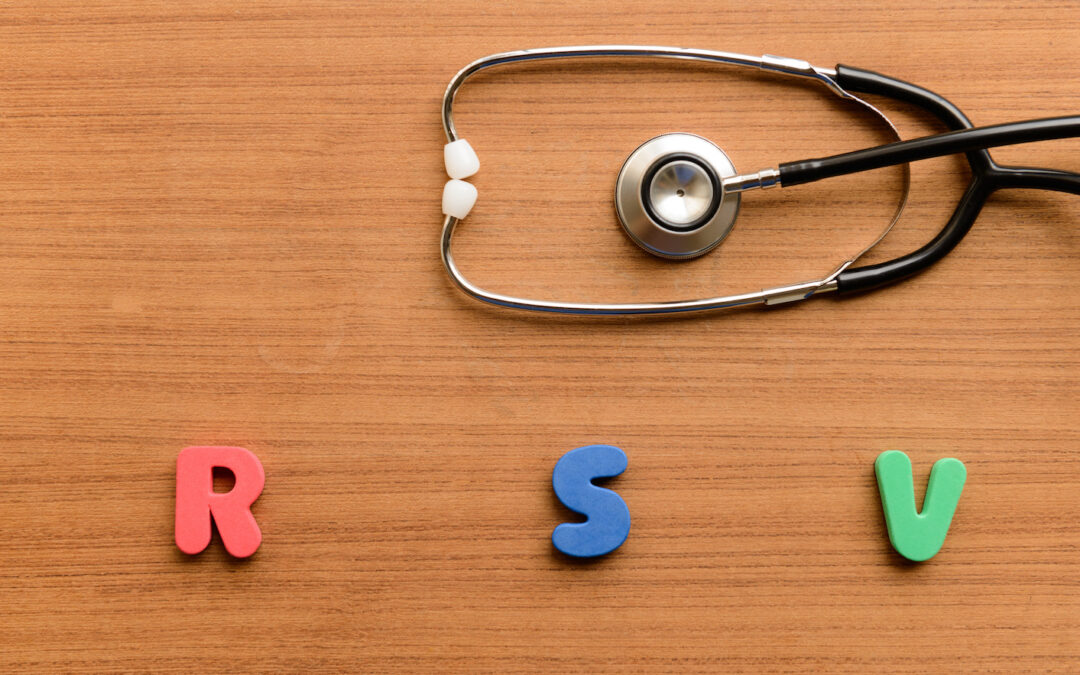Respiratory syncytial virus, or RSV, is a common respiratory virus that usually causes mild, cold-like symptoms.
Most people recover in a week or two, but RSV can be serious, especially for infants and older adults. RSV is the most common cause of bronchiolitis (inflammation of the small airways in the lung) and pneumonia (infection of the lungs) in children younger than 1 year of age in the United States.
Symptoms
People infected with RSV usually show symptoms within 4 to 6 days after getting infected. Symptoms of RSV infection usually include
- Runny nose
- Decrease in appetite
- Coughing
- Sneezing
- Fever
- Wheezing
Almost all children will have had an RSV infection by their second birthday.
Transmission
RSV is spread when
- An infected person coughs or sneezes
- You get virus droplets from a cough or sneeze in your eyes, nose, or mouth
- You touch a surface that has the virus on it, like a doorknob, and then touch your face before washing your hands
- You have direct contact with the virus, like kissing the face of a child with RSV
People infected with RSV are usually contagious (able to spread infection) for 3 to 8 days. Children are often exposed to and infected with RSV outside the home, such as in school or child-care centers. They can then transmit the virus to other members of the family.
RSV can survive for many hours on hard surfaces such as tables and crib rails. It typically lives on soft surfaces such as tissues and hands for shorter amounts of time.
People of any age can get another RSV infection, but infections later in life are generally less severe and more like the common cold. People at the highest risk for severe disease include
- Premature infants
- Young children with congenital (from birth) heart or chronic lung disease
- Young children with compromised (weakened) immune systems due to a medical condition or medical treatment
- Adults with compromised immune systems
- Older adults, especially those with underlying heart or lung disease
In the United States and other areas with similar climates, RSV infections generally occur during fall, winter, and spring, although can occur at any time.
Prevention
There are steps you can take to help prevent the spread of RSV. Specifically, if you have cold-like symptoms you should:
- Cover your coughs and sneezes with a tissue or your upper shirt sleeve, not your hands
- Wash your hands often with soap and water for at least 20 seconds
- Avoid close contact, such as kissing, shaking hands, and sharing cups and eating utensils, with others
- Clean frequently touched surfaces such as doorknobs and mobile devices
People with cold-like symptoms should not interact with children at high risk for severe RSV disease, including premature infants, children younger than 2 years of age with chronic lung or heart conditions, and children with weakened immune systems. They should also refrain from kissing high-risk children while they have cold-like symptoms.
Parents of children at high risk for developing severe RSV disease should help their child, when possible, do the following:
- Avoid close contact with sick people
- Wash their hands often with soap and water for at least 20 seconds
- Avoid touching their face with unwashed hands
- Limit the time they spend in child-care centers or other potentially contagious settings, especially during fall, winter, and spring.
Manage RSV Infection
Take steps to relieve symptoms
- Manage fever and pain with over-the-counter fever reducers and pain relievers, such as acetaminophen or ibuprofen. (Never give aspirin to children.)
- Drink enough fluids. It is important for people with RSV infection to drink enough fluids to prevent dehydration (loss of body fluids).
- Talk to your healthcare provider before giving your child nonprescription cold medicines. Some medicines contain ingredients that are not good for children.
- Monitor for signs of distressed breathing- You should immediately have your child evaluated by a medical professional if you believe they are having distress
- Increased difficulty in breathing, your child is breathing more than 50 times a minute
- Fever
- Listless and fussy
- Poor feeding
- Increased tiredness
- Bluish discoloration around lips, mouth, or on the tongue. RSV can cause more serious health problems
RSV can also cause more severe infections such as bronchiolitis, an inflammation of the small airways in the lung, and pneumonia, an infection of the lungs. It is the most common cause of bronchiolitis and pneumonia in children younger than 1 year of age.
Healthy adults and infants infected with RSV do not usually need to be hospitalized. But some people with RSV infection especially infants younger than 6 months of age, may need to be hospitalized if they are having trouble breathing or are dehydrated. In the most severe cases, a person may require additional oxygen or intubation (have a breathing tube inserted through the mouth and down to the airway) with mechanical ventilation (a machine to help a person breathe). In most of these cases, hospitalization only lasts a few days.


Recent Comments